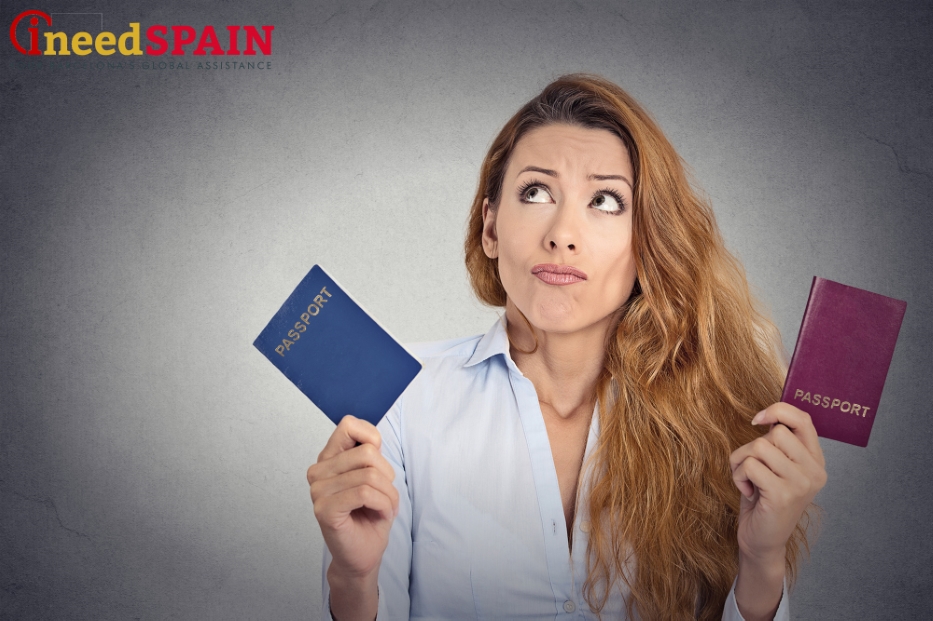
Spanish legislation allows Spanish nationals to obtain the citizenship of another country. Nevertheless, this provision, established in article 11 of the Constitution of Spain, stipulates many restrictions, among which the main criterion for the country from which a Spanish citizen plans to obtain citizenship is the presence of “specific cultural links” with the Kingdom of Spain. The key feature is a shared language (Spanish and Portuguese count as official languages).
As in all other cases, the possibility to obtain dual citizenship in Spain is defined by the existence of a dual citizenship agreement with another country. Most such agreements were signed between 1958-1991 and have been reinforced in the Civil Code of Spain. The truth is that there are not many countries that have dual citizenship agreements with Spain. As of today, Spain allows dual citizenship with all countries of Latin America, Andorra, Portugal, the Philippines, and Equatorial Guinea. The citizens of these countries do not have to renounce their original citizenship in order to obtain Spanish citizenship. Hence, both citizenships held by a person who is originally from one of the above-mentioned countries will be recognized officially by both governments.
For the residents of other countries, the answer to the question concerning dual citizenship in Spain that is most frequently asked is more complicated. Officially, it presupposes the irreversible renouncement of an original citizenship in return for obtaining Spanish citizenship. Yet, discrepancies in the legislations of certain countries and numerous “tricks” allow some people to bypass this rule. This is the case, for example, for citizens of the United States of America.
Currently, there is no agreement between the U.S.A. and Spain that would allow for obtaining dual citizenship in these two countries. Nevertheless, it is possible to possess both citizenships. In this case, only one of the dual citizenships will be recognized by each party. The case is that in order to obtain Spanish citizenship, the Spanish government requires renouncement of an actual citizenship in a written form in favor of the Spanish citizenship. In order to do so, one must submit this application in person to the relevant authorities. At the same time, the United States recognizes the renouncement of its citizenship only if the application is submitted on American territory and provided that the whole procedure is carried out in the U.S.A. as well. If submitted in Spain, the authorities of the United States will consider renouncement of the U.S. citizenship invalid, but it will be a sufficient proof for the Spanish officials to see that one did renounce U.S. citizenship. When obtaining dual citizenship of the U.S.A. and Spain in this manner, it is important to remember that one becomes a tax resident of both countries at the same time and is subject to the legal responsibility (in case of any legal offence) stipulated by the legislation of both countries.
After BREXIT, the question of a dual citizenship between Spain and Great Britain has become an acute issue. In spite of the fact that there is still no dual citizenship agreement between these two countries, Britons living in Spain for a long time have petitioned to obtain dual citizenship from the Spanish authorities. As an argument, they refer to their fragile status according to the exit of Great Britain from the European Union. Moreover, they claim a mass injustice: the Spanish immigrants living in Great Britain are eligible for dual citizenship after 5 years of residence in the country, although there is no such option for the English living in the Kingdom of Spain.
For citizens of all other countries, when obtaining Spanish citizenship an immigrant must renounce his or her original citizenship.
Spain dual citizenship requirements

The procedure for dual citizenship in Spain is not complicated, although it might require some time (from 18 to 24 months). If the dual citizenship is requested by the citizens of the countries that have dual citizenship agreements with Spain, no additional documents are required (just the basic list of documents) – apart from confirmation of one’s citizenship in the country of origin. In other cases, one needs to complete an official form to renounce one’s original citizenship and perform this procedure on Spanish territory, and only after that may one submit the documents for Spanish citizenship.
The standard set of documents required for submission to the Spanish authorities includes the following paperwork:
- Birth certificate of an applicant (and birth certificate of a spouse if he or she has Spanish citizenship. If so, the certificate of marriage is also required);
- The certificate issued by the consulate that contains information about one’s previous citizenship, criminal records (of course, it is best not to have any), other offences, as well as facts about the military and humanitarian situations in the country of an applicant’s citizenship.
- The certificate confirming that an applicant was never presented with charges on Spanish territory, according to the Spanish legislation.
- The document issued by the police of Spain that shows the data for the duration of an applicant’s legal residency in Spain before applying for citizenship. Additionally, the certificate from one’s place of registration in Spain might be required (empadronamiento).
Should you have any questions concerning Spanish citizenship and dual citizenship, you are more than welcome to contact the specialists of INEEDSpain service center, who are ready to consult with you on any issue and provide all the necessary information and helpful recommendations.





